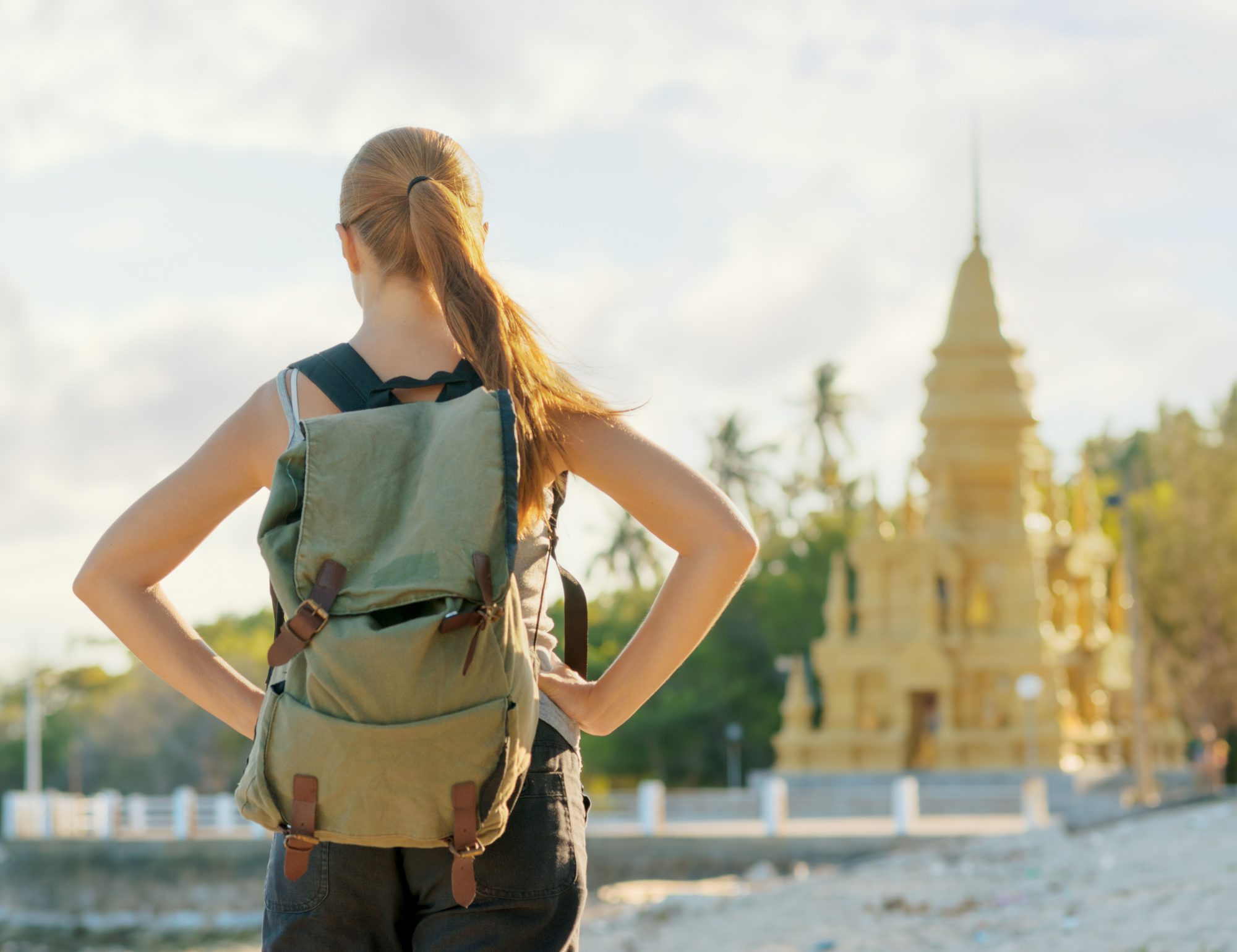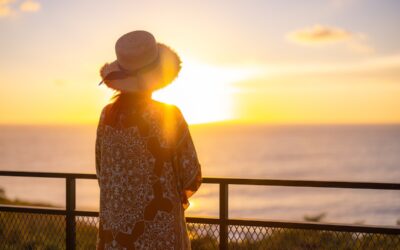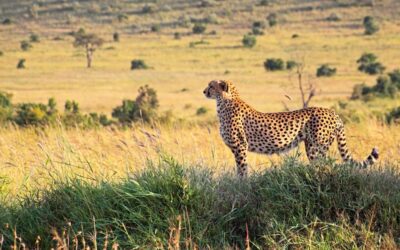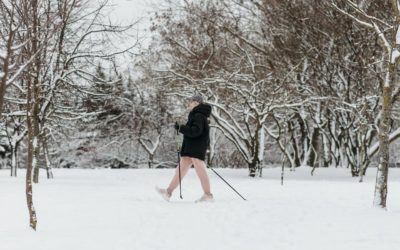Last updated on March 20th, 2024
Women share their advice on starting the healing journey
by Amanda Burgess
Grief and loss are part of the human experience. Indeed, it’s something the world is feeling collectively right now, gripped as we are by a pandemic. We’ve lost lives and loved ones, personal freedom, our sense of safety and security. Some of us miss the lives we had before the world slowed down.
Some of us have walked this path before – the one marked by loss and grief. It’s a different experience each time you’re called to walk it. When grief has you in a vice-grip, the urge to escape, to run, is strong. “I was supposed to be in Europe now,” says Marti S. “The date was in part to avoid being at home on the first anniversary of my husband’s death – a marker I was starting to get my life back, beginning with travelling again. We were married for 48 years, in this house for 40. I just want to run away from home like a little kid.”
We asked our JourneyWoman community to share advice to a new widow looking to take a healing journey – and were overwhelmed by your empathy, support, and wealth of ideas. This month, three widowed JourneyWomen – including myself – share the stories of our grief journeys. We each lost our husbands at different stages of our lives. Embarked on our journeys at different points in the grieving process. But our stories have one common thread: We each found healing in travel.
When you take a trip the two of you were planning to take together alone
When Marion B. met her late husband Dana, she had been on her own for a long time. “We enjoyed so many things in common including music, travel, gardening, cooking, and conversation,” she says. “He loved my kids and was so happy when my daughter and son-in-law had their first child. He was finally a grandfather. He was very good at wood-crafting and made a beautiful cradle for our first grandchild.”

Marion and her husband on a trip to the British Virgin Islands
On May 25, 2011, Dana decided to work from home as he wasn’t feeling well. At 2 pm, Marion received a phone call from the ER at the Royal Alex Hospital in Edmonton, Alberta where they lived. They told her to come as quickly as she could but didn’t explain further. Her husband had called for an ambulance but died en route to the hospital. He was 53 years old. “The autopsy said he was one of 3% who died from a blood clot with no explanation. I was in shock for a long time after. I couldn’t believe he was gone. He was everything to me, and in the space of minutes, he was gone,” she says. “I don’t remember how I got home, and I don’t think I started to grieve until I laid down on our bed that night and kept smelling him on the pillow beside me. I cried a lot for many days after and many years to come.”
Marion created a mantra that she still says every night before she goes to sleep: “Good night babydoll. I love you with all my heart and soul, and I miss you.”
About a year after Dana’s unexpected death, Marion decided to take her first trip, one that had been on the couple’s retirement Bucket List: Italy. “I went alone but joined a women’s group of widows with Trafalgar Tours,” she says. “We were all grieving our loss together. Dana and I had planned to go to Tuscany to visit wineries, cheesemakers and olive farms and search for ceramic tiles for our home. I did all of that, and also went to museums and leathermakers. Each night before I went to sleep, I said my mantra to his picture that I bring everywhere I travel. It’s as if he is with me on all my adventures.”
Taking photographs and writing in a diary helped Marion begin the process of healing and adjusting to being on her own. “I discovered an inner strength in me that told me I could do things on my own or with like-minded people,” she says. “Talking to my husband as if he was with me made it easier for me. I did this every morning when I got up and every night when I was finally in my hotel room. It made it more real for me, and yes, I cried – but I smiled too, and it helped me feel again. The numbness in my soul and heart became less.”
When you travel to do something you both loved and find yourself again
Joy met her husband Michael a blind date in 1959. They were both missing England, as new immigrants to Canada. They got married in Vancouver six weeks later on May 9, 1959. By 1997, they were living in Oakville, Ontario, had three children, and were starting to think about where to live when they retired. They moved to Victoria, British Columbia. Soon after, Mike was diagnosed with Parkinson’s. Joy cared for him until his death in 2015. He was 79. Joy was as well. Their birthdays were a day apart. They’d been married for close to 56 years when he died.
“He deteriorated so much over the years after our move to Victoria. In 2014, he was transferred to a care home. I visited every day,” says Joy. “Eventually, he could not talk, walk or eat, and had pneumonia for seven months. I knew that pneumonia would kill him, as swallowing is affected during Parkinson’s Disease, and food and liquid end up in lungs rather than stomach. On December 31, 2014, the care home called to say they were going to suction his lungs. I told them not to do that – it was a cruelty. I called my daughter Melody (a Nurse Practioner) in Ontario and asked her to liaise with the nursing station as to treatment. Mike was given morphine, and he gently floated away on January 2, 2015.”
Key to Joy’s healing was the support group she found through the Parkinson’s Society. Everyone in the group had a partner with the disease, and they shared information, tears, frustration and rage freely. It helped her to cope with the inevitable. “I grieved a lot before Mike actually died and his death was a blessing really. He was a child again, not the handsome husband I had married all those years ago,” she says. After he died, Joy wanted to feel whole again, and decided to go on a walking holiday with a group of 12 in The Cotswolds in England.

Joy and her husband MIke on their wedding day in 1959.
“I didn’t want to run into anyone I might meet on local Victoria walks, which is why I chose to get away. People are kind, but after a while, I didn’t want to face all the sympathy,” she says. “It was a marvellous holiday, one of the best things I have ever done. The countryside was lovely and it brought back happy memories of holidays spent wandering in the English countryside with Mike. After walking several hundred kilometers, I headed home feeling rested and refreshed and like a new person – ready to face whatever life offered me.”
After a year of being alone in Victoria, Joy sold her house and moved further up Vancouver Island to Parksville. “There was no escape from memories, so I felt the need to find out more about myself,” she says. She knew no one, but found a small rancher with an adequate garden, made friends with her neighbours (who meet once a month for a party), got involved with two choirs, joined a clogging group and decorated the house her way. “I am very happy and content with my life. I love my life. I love where I live and I love who I am,” she says. “A lot of people have said I was brave to make this move at 80, but it didn’t seem such a big deal to me. Now I am on the way to 85, still travelling alone, but most of all, enjoying every day and being grateful for everything in my life.”
When you return somewhere you’ve been with the one you lost
On July 4, 2018, my husband Gabe claimed his own Independence Day through Canada’s Medical Assistance in Dying program. It was a defiant stand against the pancreatic cancer that determined his life would be cut short, but he alone would say when. He was 42 that day. I was 44. We’d been together for seven years and married for only two.

I wasn’t consciously planning for the two-month solo adventure I embarked on in mid-January to become a grief journey, but that’s what it morphed into the second my plane touched down in my first of three locations. I began my trip in Bali, where my travel tribe and I were converging for the first time as a group since Gabe – our chieftain – passed away.
Perhaps it was the poignancy of powering up the circle that had surrounded me throughout his journey. Perhaps it was the fact that I was returning to Bali – where Gabe had taken me for my 39th birthday – a different woman, without the man who constantly challenged me to become who I now was. All I know is that I felt a deep energetic shift, and a wave of grief that tossed me into a maelstrom. I felt unsteady, off-kilter, set apart from all of my friends. Almost as if I were viewing them – and life – from under water. I was alternately ignoring or resisting what my body was telling me.
So, I adjusted my plans and arranged to return to Bali for a month following a two-week Adrenaline Junkie tour of New Zealand’s South Island and a few more days with good friends in Sydney. It was time to slow down. Time to stop running. When you run, when you chase experiences, when you seek answers outside of yourself — well, you can turn away from that storm for a spell. The only catch? You also turn away from yourself.
I plunked myself down at The Yoga Barn in Ubud for two and a half weeks. Immersed myself in yoga classes, learned the fundamentals of Thai Massage and took workshops that were less about doing and more about being. I cried out an ocean of tears. Connected on a deep level with some fascinating women from all over the world who came through the dorm I made my temporary home. And I felt the harder edges of my grief loosen.
Advice for the grieving from three widows
“If I could offer one piece of advice to the grieving, it would be to resist the temptation to rush the healing process. Modern society is uncomfortable with grief. With facing death, loss and our own mortality. That’s why grief can be an isolating experience. We can become impatient with ourselves and our own grief journey – which has no rules, no timeline, and no predictable route. We might think we ‘should’ be at a certain stage of healing by a certain point in time. We might compare our journey to others. We shouldn’t. Healing begins when we release ourselves from expectations and allow ourselves to feel – and to sit with those uncomfortable feelings without judgement or attachment.” – Amanda
“One piece of advice for anyone grieving a loss: Don’t isolate yourself because you are sad. Being social keeps you alive and interested in life. A person may not feel like getting out, but one would hope that a friend would call them and urge them out for a walk. Nature is a healer, and walking (if one is able) is always good for the body and soul. Keep your interests going, whether they be swimming, exercise, gardening, reading, dancing. Just don’t be a hermit – it will prolong your grief. If you need counselling, go for it. Call friends, join an interest group, and get a good social life going.” – Joy
“My advice: Don’t think you can do it alone. Talk to your family, friends, your doctor, your church or synagogue. They are there for you always. No one can do it alone.” – Marion B.
Read More Stories on Traveling After Loss
Getting Back Into Travel: Widows Who Travel On Their Own Terms
What happens when the person you’ve shared a life and traveled with is suddenly not there anymore? How do you get started in solo travel?
How Travel Changes Us: From Grieving Widow to Cheetah Crusader in Kenya
When Michele McCarthy was widowed, she turned to solo travel as a way to reinvent herself as a cheetah crusader in Kenya.
7 Tips to Take the First Step into Solo Travel After Loss
Women travellers and experts offer tips and wisdom on taking the first shaky step into solo travel after loss.







What a great article on a complex topic. When you have been a caregiver for a loved one, the grieving process starts earlier. I was thankful that we had traveled a lot, as I could pull up memories for him to nudge his depression.
It has been four years now, since my husband died. We had met in Bali in ’76. My girlfriend and I were hitch hiking and he picked the two of us up on his motorbike. We traveled together for 18 months, got married and had a child. When our daughter was three, we went on a three year trip around the world. Our second daughter was born en route.
My boyfriend before I met my husband has been back in my life for 3.5 years. We have also traveled a lot around the west coast in an RV. At first my making new memories was tinged with guilt…
I have had a blessed life. My mantra is Trade expectations for appreciation.
I am a widow of just over a year after sixty years of marriage. I did a lot of traveling with and without him. I am progressing well in becoming my own woman and would love to travel again, when it becomes safe to do so. However, I am 80 and have trouble walking very far. Do you have any trip suggestions for people with physical limitations like mine?
Hello Diane, I just now came across this website and noticed that your question remained un-answered.
I can’t even imagine losing a loved one after 60 years of marriage, it must be really tough. Please accept my deepest condolences!
I travelled a lot with and without my late husband before he died. He was ill with vascular dementia for two years at the end, which was difficult and had me grieving ahead of time. He was only 68 when he died, much too young. I started travelling again 15 months later because I was more than ready. I found the planning and anticipation soothing and helpful. The six weeks away in Morocco and Spain, with and without a small group tour were energizing. Working on the 3,000 images upon my return home gave me something creative to do for a long time.
With that first success, I never looked back and have travelled for six weeks twice a year thereafter. Initially, I was careful to go to countries we’d never visited together so I wasn’t beset with memories. Now I can enjoy the same places over four years since his death and remember our joint adventures with pleasure.
My advice: Start travelling when you feel ready and take a small group tour (no more than 12) for a week or so to try it out. Then get more adventurous if you enjoyed it. You’ll be glad you did.
My husband and I were married for almost 15 years. We married late in life but traveled every year and even lived in France for a year. He died suddenly 10 weeks ago. Since then I have wondered if I will ever travel again. Your comments have encouraged me to consider it after a bit more time has passed. Thankyou
My husband died a year ago, we were together 40 years. I would love to travel but am concerned about covid and the prospect of needing health care overseas. Are there solo travel groups that are focusing on US travel?
I. Looking to start traveling with a group of woman like myself who have suffered loss and just need to find peace and some happiness . Thank you, Kelly
Kelly, take a look at our Women’s Travel Directory. Maybe a retreat? https://directory.journeywoman.com/wellness-transformational-retreats-for-women-over-50/